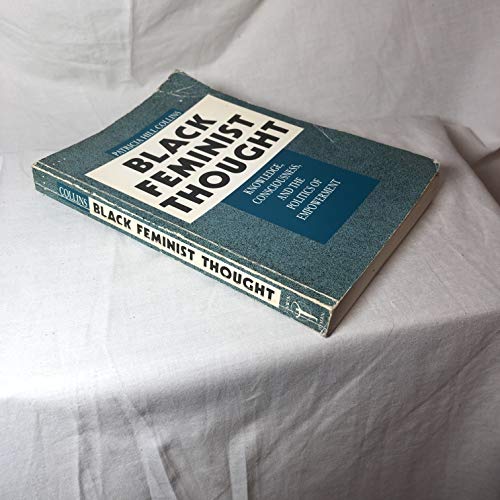
Black Feminism as Critical Social Theoryīlack feminist thought and Black feminist practice inform one another. Instead, Collins emphasizes that the different ways individual Black women respond to their group commonalities characterizes a collective Black women’s standpoint. Black women differ depending on the historical era they share, their class position, their sexuality, ethnic heritage, etc.Ĭollins asserts that no homogeneous Black women’s standpoint exists and to assert otherwise suppresses the individuality and diversity of Black women. Nevertheless, the ways individual Black women respond to these themes may differ because common challenges do not mean universal experiences.

The Black women’s standpoint, Collins argues, has several core themes due to the shared legacy of struggle for Black women in the United States. Read more on standpoint theory in this introduction by feminist philosopher Sandra Harding.

Collins uses the term standpoint to refer to group knowledge. Collins argues that this consciousness amounts to the collective wisdom of Black women, derived from a shared experience of Black womanhood that creates a distinctive, collective Black women’s standpoint. This experience shapes the consciousness of Black women. The unique experience of living as a Black woman in America reveals the contradictions of marginalization within a democratic society. The Black Women’s StandpointĬollins writes that Black women engage in activism as a response to how the intersecting oppressions of race, class, gender, sexuality, and nation shape their lives. Black feminist thought according to the second chapter of Collin’s Black Feminist Thought. In this blog, I describe the six features of U.S. Everyday Black women contribute to Black feminist thought.įor example, Cashawn Thompson, an early childhood development expert living in D.C., coined #BlackGirlMagic as a lens for Black women and girls to self-define and innovate positive representations of their identities as a counternarrative to the negative controlling images of Black women and girls that perpetuated by the social institutions of mainstream society. Furthermore, not only Black women intellectuals engage in Black feminist thought. However, Patricia Hill Collins writes in the landmark text on the subject that the work of Black women intellectuals constitutes just one feature of Black feminist thought in the United States. For my conceptual framework, I used intersectionality as theorized by Kimberlé Crenshaw in her 1991 article “Mapping the Margins: Intersectionality, Identity Politics, and Violence against Women of Color.”

For example, I analyzed the intersectional social media activism of #SayHerName proponents on Twitter. My research looks at the Black feminist practices of contemporary social movements. Black feminism encompasses both Black feminist thought and practice.


 0 kommentar(er)
0 kommentar(er)
